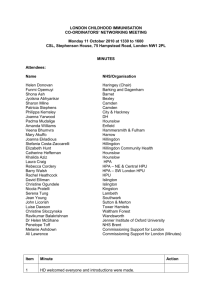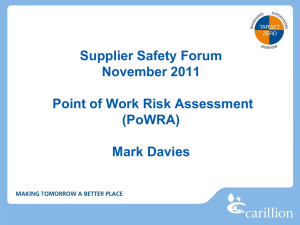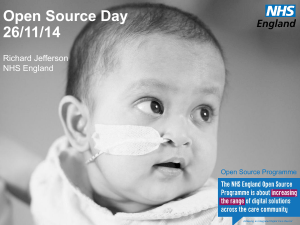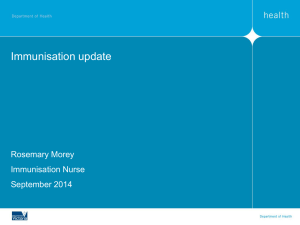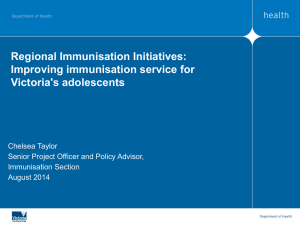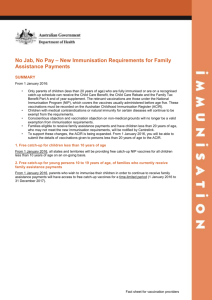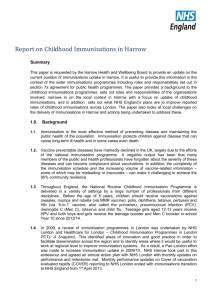Aline Marron Incident community Pharmacies Presentation
advertisement
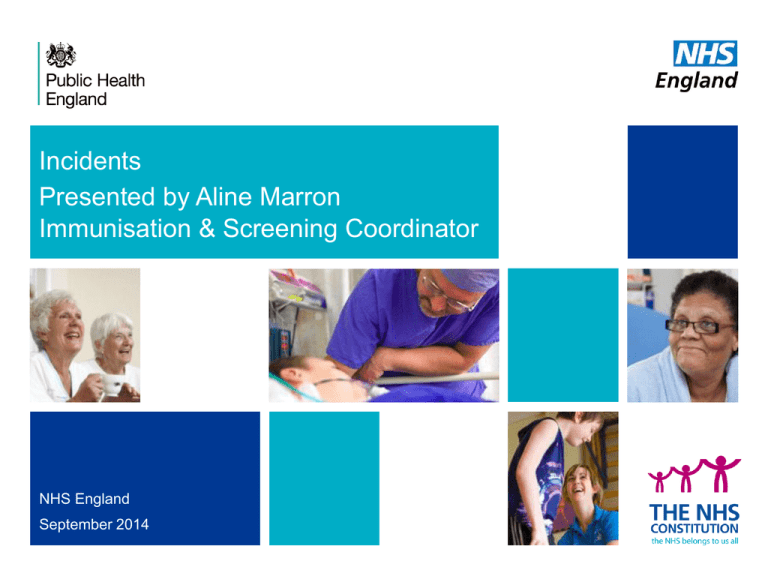
Incidents Presented by Aline Marron Immunisation & Screening Coordinator NHS England September 2014 Aims of the session • To raise awareness about Immunisation incidents. • To raise awareness of the process for reporting immunisation incidents to the Screening & Immunisation (Public Health England) 2 NHS | Immunisation Incidents • What is a vaccination incident? • Why report incidents • Incidents and the role of the Immunisation & Screening Team (PHE). 3 NHS | Incidents • Cold chain incidents - vaccines stored at optimal range +2 to 8 degrees celsius – licensure requirement. - degredation of vaccines if stored outside of recommended range. - Loss of potency may result in suboptimal response. 4 NHS | Cold chain incidents - vaccines stored at optimal range vaccines given out of schedule, vaccine not +2• Examples; to 8 degrees age appropriate, incorrect vaccine given, expired vaccine celsius – licensure requirement. • Immunisation & Screening team provide advice and degredation of vaccines if stored sign post to other sources of information if required – HPU, GP, outside ofScreening & Immunisation lead. • Reporting may indicate trends i.e. training. recommended range. - Loss of potency may result in suboptimal response. 5 NHS | Cold chain incidents • Requires multidisciplinary risk assessment - Immunisation & Screening Team (PHE DDT Area Team) - Medicines Optimising Service - Vaccine manufacturer. 6 NHS | Cold Chain incidents • Report to; Immunisation & Screening team at ddtscreen.imms@nhs.net Tel. 01138251600 • Local Reporting 7 NHS | Cold Chain incidents • Impact on service provision due to unavailability of vaccines. • Potential of suboptimal response to a vaccine used outside of the cold chain recommendations • Time spent recalling to inform and possibly revaccinating patients • Cost – cost of vaccine and time • Loss of confidence in service 8 NHS | Cold Chain Incidents • Due to mechanical or human error. - cold chain disruption – fridge failure - Loss of power – fridge unplugged. - Power cut. Building work. - Fridge door not closed securely. - Vaccines not placed in fridge after receipt. 9 NHS | Immunisation Incidents ‘It is never acceptable to be in the position of having to tell individuals that they may not be protected by the vaccines they have received in good faith as a result of human error’ 10 NHS | Cold chain incidents • Minimize risk by; • Identifying a member of the Pharmacy team to receive the vaccines and place in fridge soon after delivery. • Record the fridge temperature daily – morning and evening. Reset the temperature – 3 R’s read, record, reset. • Fridge hard wired into wall – no plug to dislodge. • Lock fridge door – reduces risk of door being left open. 11 NHS | Incident reporting process • Pharmacy must inform the Immunisation and Screening team of all incidents involving vaccines • Pharmacy complete incident report and return. • Immunisation & Screening Team audit reports and identify trends and learning 12 NHS | Useful information • HPA Incident Guidance http://www.hpa.org.uk/webc/HPAwebFile/HPAweb_C/1267551139589 • Green Book https://www.gov.uk/government/organisations/public-healthengland/series/immunisation-against-infectious-disease-the-green-book 13 NHS | How to contact us • Vaccine enquiry line 01138 251 600 • ddtscreen.imms@nhs.net 14 NHS |

